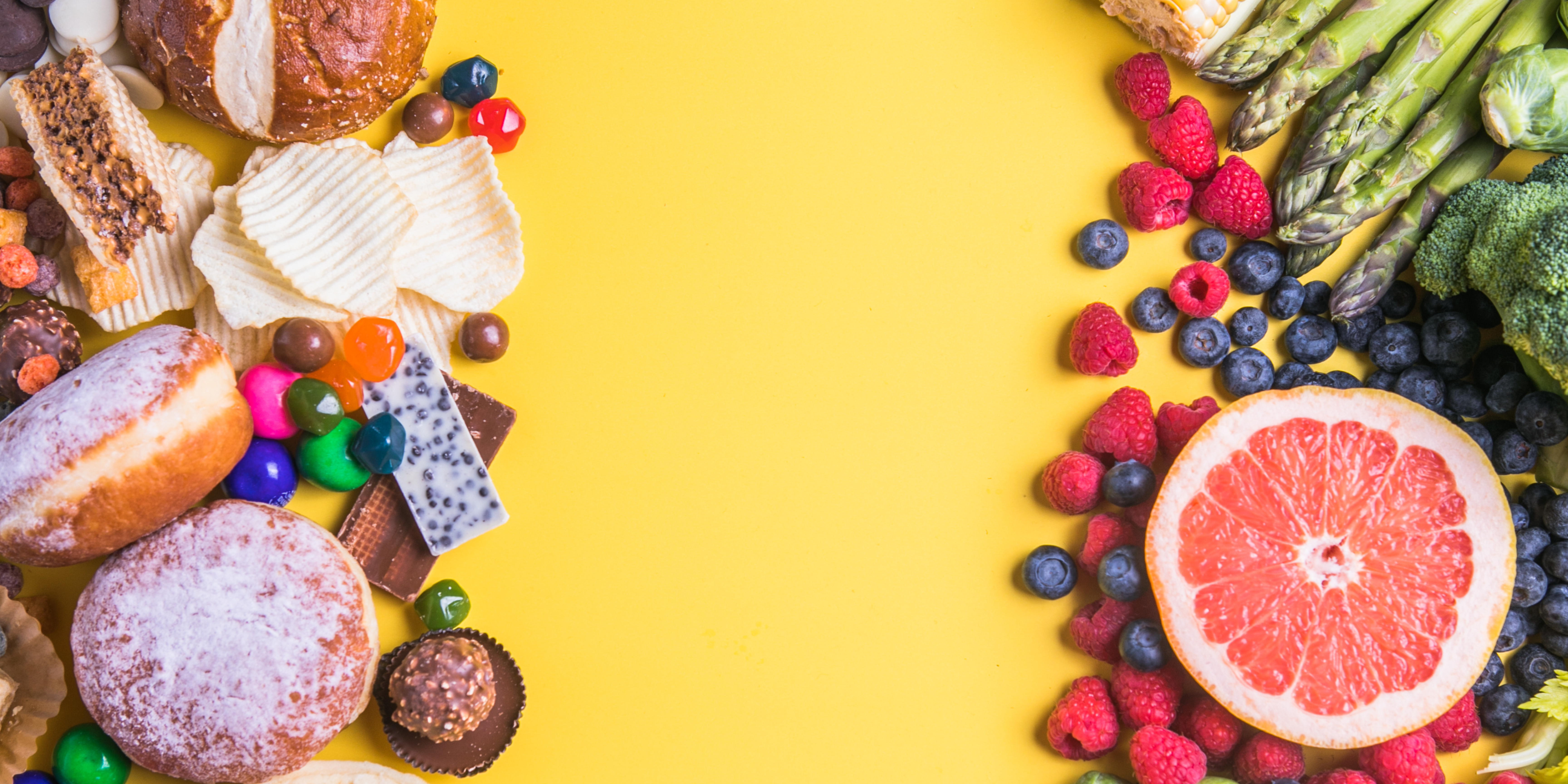We talk about food all the time, what we’re eating, what we’re avoiding, what’s considered “good” or “bad,” and what we think we should or shouldn’t have. But are we really just talking about food? Whether we notice it or not, the way we talk about food shapes how we see ourselves. Judgement, guilt, and moralized language have become so common in these conversations that food and eating become a measure of our self-control, discipline, health, or even our worth.
The Hidden Impact of Everyday Food Talk
Most of us don’t even realize how early it starts. From the time we’re young, we begin to develop a clear idea of what it looks like to eat “healthy.” It is not always something that is directly taught. More often, it’s subtle, just there in the background. At the dinner table, in ads, at school, and on food packaging. Somewhere along the way, food and eating became less about listening to our bodies and enjoyment, and more about how well we can follow the rules. “Low carb,” “sugar free,” “clean,” “guilt-free,” “junk food,” and the list goes on. These phrases are everywhere, and they aren’t just about food; they quietly tell us what choices are okay to make, and what kind of person we are for making them. A granola bar is fine (as long as it’s homemade and not just a chocolate bar in disguise), but a cookie? That’s a “treat.” You had a salad for lunch? “You’re so disciplined.” Chips? Those are a “guilty pleasure.” Dessert? Practically a confession. It’s subtle, but it sticks. And after a while, the pressure to follow all of the unspoken rules wears us down. Food becomes something we feel the need to earn or justify, and suddenly, enjoying a slice of cake or ordering fries becomes a moral failure rather than a menu choice.
The Morality Myth: You Are Not What You Eat
Although it may sound harmless, sayings like “you are what you eat” convince us that eating something “bad” makes us “bad.” Eating becomes moralized, and we learn that we need to police our plates or brace for the guilt and shame that comes with our poor or “unhealthy” choices, leading to the familiar diet cycle of restriction, “cheating,” and starting over. Internalizing these messages leads us to feel as though we need to explain our food or justify our choices (“I didn’t eat lunch so it’s okay to have dessert”), because anything less than perfection is “failure.” Diet culture has promoted this mindset with “cheat days” as if eating pasta on a Thursday is some kind of rebellion, and convinced us it is all in the name of “health.”
Rewriting the Food Script: Why Language Matters
The way that we talk about food doesn’t just reflect our beliefs, it shapes them. Over time, the language we use to talk about food influences how we think and feel about eating, our bodies, and even our self-worth. When that language is steeped in judgement with words like “clean,” “cheat,” or “guilt-free,” it quietly teaches us that food is something we need to control, justify, and feel badly about.
This isn’t just about word choice though. Language helps us make sense of the world around us, and shapes our behaviour. It affects our understanding of food, and influences how we eat, how we feel after eating, and how we treat ourselves in the process. It impacts how much trust we place in our own bodies, and our ability to eat in attuned ways (check back for a future blog about attuned eating). When food becomes a moral choice and our focus is on eating “right,” eating can become a performance of being “good” rather than simply being about enjoying food that feels good in our bodies.
At Valeo Well-Being, we believe that shifting how we talk about food is a meaningful first step in shifting how we relate to it. When we let go of judgement, we make room for a better relationship with food, one with more ease, trust, and flexibility. We can begin to view food as food, rather than a test of our discipline, and develop a relationship with it that is enjoyable and supportive.
Let’s choose words that support a more compassionate approach to eating that honours our bodies’ needs and wants. How we talk about food matters, and how that influences our sense of self matters even more.
Improving Your Relationship with Food One Word at a Time
If we want to change how we think and feel about food, we have to start with how we talk about it. The words we use, whether they are out loud or in our head, have a significant impact. So let’s let go of the labels like “good” or “bad,” and opt for language that is more neutral, that invites compassion, and doesn’t link food to our worth.
Here’s are a few ways to talk differently about food:
- Pay attention to your language. Notice when judgement is sneaking in and you are being self critical. Catch yourself when you are saying “I need to be good tomorrow,” or “I don’t deserve this,” and be curious about where those messages are coming from.
- Be neutral. Try labelling food without attaching meaning to it – food is food. A cookie is a cookie, a salad is a salad, and neither defines you.
- Tune in, not out. Check-in with what your body is telling you instead of following rules or trends. What would be satisfying? What would taste good? What would make you feel energized?
- Make space for all foods. A balanced and sustainable approach includes variety. All foods have a place, carbs, fats, sweets, protein, and yes, even processed foods. No food needs to be off-limits, unless there is a medical reason like an allergy
- Be kind and compassionate with yourself. You don’t need to earn meals or explain your choices. You are allowed to eat for enjoyment, not just fuel.
At Valeo Well-Being we believe that food should be an enjoyable part of your life, not something that controls it. Our Registered Dieticians and Psychologists are here to help you develop a more flexible and compassionate approach to eating. If this approach feels uncomfortable, or even a little scary, that’s okay. It’s new and will likely take time, but it can start now with the words you choose.


